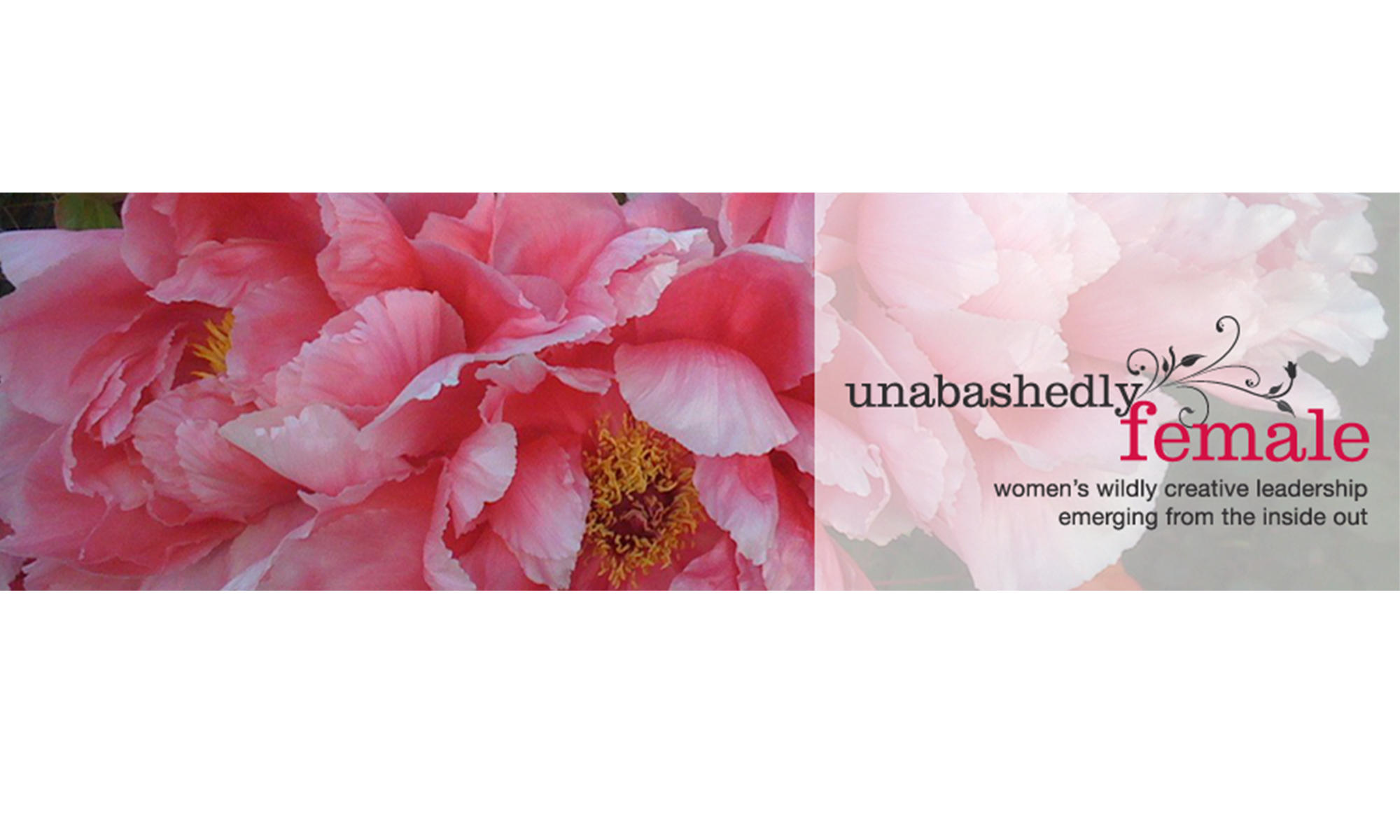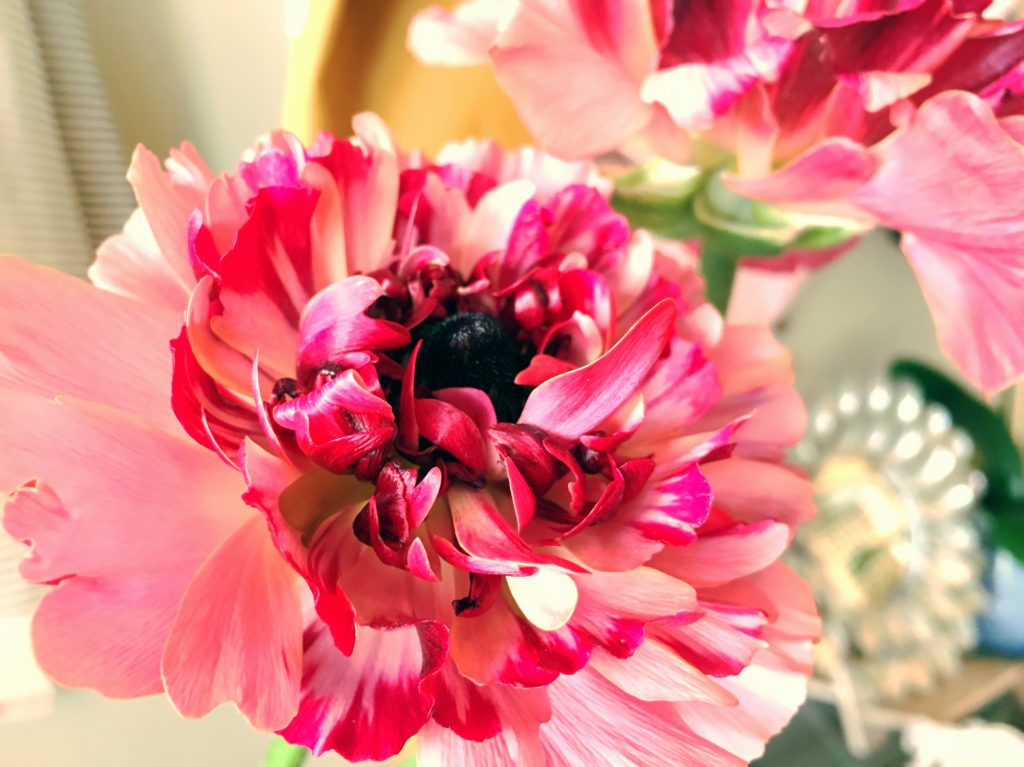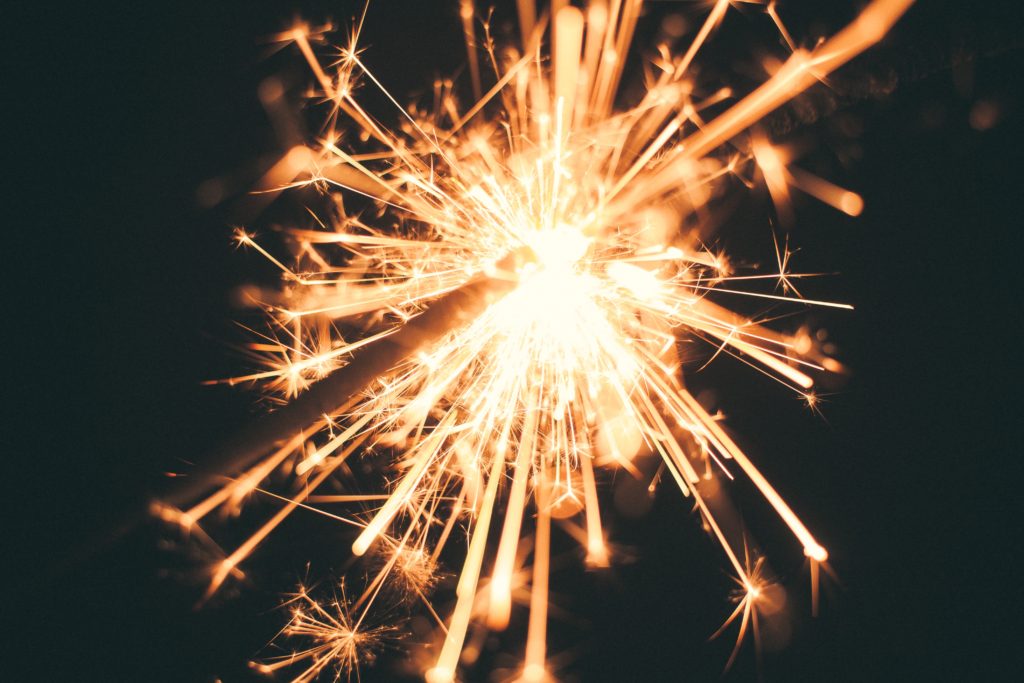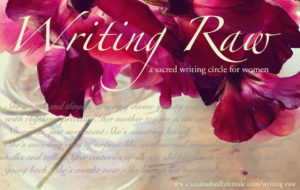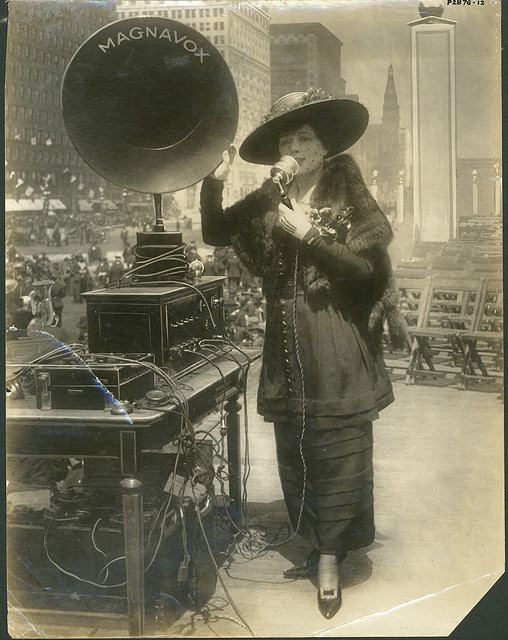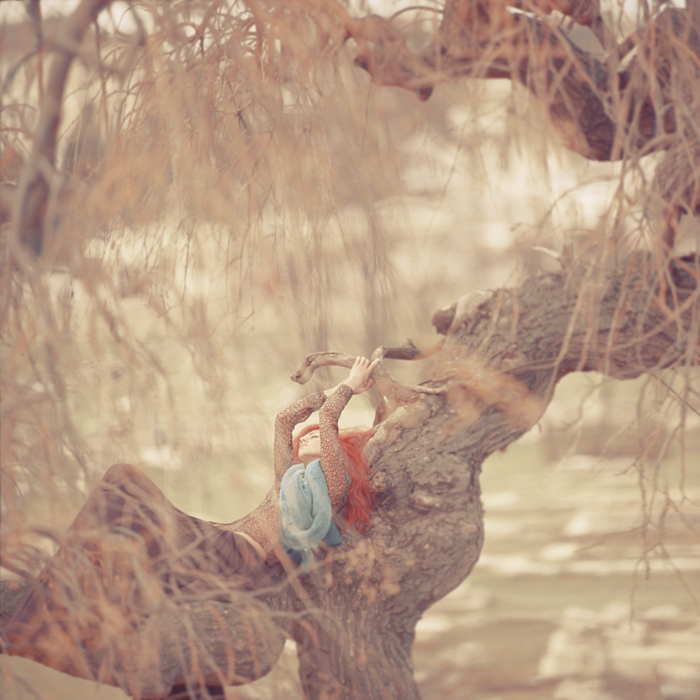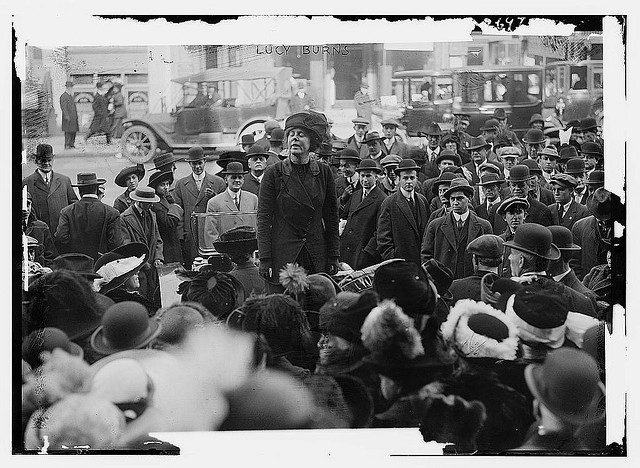
 Lucy Burns, American suffragist and women’s rights advocate.
This is part 2 of a five-part series on rediscovering, and speaking in, our mother tongue.
In part 1, Has Your Mother Tongue Been Lost in Translation?, I wrote about how women often translate, or code-switch, from our native way of saying things into a language that the masculinized culture will hear and accept so that we will be ‘taken seriously’, or to be not too ‘threatening’, which ultimately means ‘be accepted’.
In this series, Mother Tongue, I am specifically speaking to women, specifically asking the question:
What wisdom and creativity are we losing because women’s ways of speaking, a feminized expression, is seen as inferior to masculinized expression?
I make this distinction between the difference of female and male because we are different. Yes, men and women both have masculine and feminine traits and energies. That is so. And, we can’t express our creativity without it coming directly through the body, a gendered body. This directly impacts our creativity, our leadership, and our wisdom. To deny this, is to once again attempt to deny the validity and value of feminized expression.
Why do we translate?
If I reflect on my own experience over the many decades of my life, I can see where I’ve consciously chosen, many times, to choose my words carefully, to leave certain words out and to replace them with words that would be less challenging and provocative to those I knew would hear them. It’s startling, in looking back, to see how quickly I could size up a situation and then decide how best to ‘navigate’ that situation.
I’ve translated for many reasons. Sometimes, it was merely to figure out how to best communicate to the people I was conversing with. If I wanted them to understand, I could change the words, tone, and content in order to help achieve one-half of that understanding – the other half being their responsibility. I have known for a long time that I can’t make someone understand me, nor can I make anyone even really hear me. But, I can be proactive in helping to make the conversation be more productive for both of us.
Other times, I’ve translated because I feared that what I would say would be provocative, would cause me to feel scorned and/or shamed. Sometimes, though, when I’ve been just plain excited to share something, I haven’t been ‘careful’. Instead, I’ve just expressed myself without switching certain words and stories for other ones that would be more digestible – or at least what I thought would be more digestible.
As women, our tendency to translate begins pretty early in. We translate, or code-switch, much earlier than when we first enter a masculine-centric world of business, though. We begin when we enter the masculine-centric world of education. And even before that, many times it begins when we become aware of language within what can be a masculine-centric culture of the nuclear family.
One story
One particular story stands out for me, and it stands out because of the shame I felt when I did not translate.
I attended Stanford University as a non-traditional undergraduate, transferring from a community college as a junior at the age of 42. While I was there, I decided to write an undergraduate honor’s thesis. I had a hard time deciding on the topic. The question swirled around me for months, because I was contemplating a very unusual topic, something that seemed to me to be very unorthodox. I didn’t know if I could find the words to speak about, and write about, what I was seeing, so I was nervous to make this choice.
Finally, the words came in a true ‘AHA’ moment – Spirituality and the Internet. I felt so much excitement as I thought about designing and writing the thesis, yet I was also nervous about bringing my spiritual side into my studies. I feared being ridiculed for having this ‘crazy’ topic (yes, my inner judge was working overtime). Keep in mind this was in 2000. The web hadn’t yet been more widely used for very long at this point. Despite my fears, my advisors knew me well, and all four of them responded with nothing but encouragement. With this encouragement, my confidence grew a bit.
Near the end of the quarter, those of us who had honor theses were asked to share our topics at a celebration dinner where our advisors were also in attendance. I was nervous to speak because I anticipated the other professors might not receive such a ‘different’ topic as kindly. I’d been at Stanford for three years, and I’d found both my age and my way-of-being ‘non-traditional’. For a split second, before I stood up, I wondered how I should phrase what I was going to say. I wondered if I should use the words Spirituality and the Internet. I wondered if I should try to coat them with something less ‘woo-woo’. I feared how I would be received. As I rose to speak, I could feel this inner voice saying to me, just speak the truth because you know this is a really incredible thing you are doing. So I did. I spoke the truth. I said,
“My topic is on Spirituality and the Internet. I am creating a spiritual experience online, and then testing users to see how they experience the space.â€
And whatever other words I decided to share quickly became lost in the bodily sensations of shame as I began to hear laughter and snickering, and saw odd looks on the older, educated, mostly-male faces. As I finished, one professor in particular said,
“What are you going to do? Play mood music and have virtual incense?â€
Ashamed of my own creativity and wisdom
His words brought more snickering. And with that, I could feel my face turn bright red and I sat down. Believe me, I’d had to face some pretty awkward moments as a woman undergrad twice the ‘normal’ age. But this moment was hard. I felt so much shame for something that was actually a really brilliant, and forward-thinking idea, based on my work in the computer science human-computer interaction courses I’d taken. From that point on, while I finished the topic, I chose my words very carefully, and I carried a kind of shame about what I was doing.
I obviously didn’t have much confidence in myself, and at this point was still allowing others’ ideas of me influence me way too much. Perhaps this might not have bothered many others, but it shut me down. I realize I shut me down. I allowed others’ words to shut me down. Some might say they were only teasing, that their words showed their own discomfort, or that a few words shouldn’t sting so much. That isn’t the point. The point is what I did with my wonderful idea. In that moment, I felt the joy go out of it because I began to judge it even more harshly. Even as I created it, somewhere inside the good ‘translator’ reigned it in.
I’m sharing this long story because it gets to the heart of what I am writing about, and I am writing about it because I have experienced it so often in my many years on this planet. I’ve experienced shame and humiliation because how I see the world and how I speak about what I see is not considered to be sentimental, too deep, not practical enough, too spiritual.
Ultimately it was me, and is me, shaming me. AND…I survived. Feeling these feelings did not kill me. Others face far worse in this world.Â
This fear of judgment can cause us to go silent; to keep our amazing creativity and ideas to ourselves. Whether it was ‘kind’ or not, it really didn’t have to impact me, nor silence me, if I was confident in my own language, my mother tongue as a woman.
This really was about my mother tongue.
This topic, Spirituality and the Internet, came through me. It was my creation. It was coming through this soul, with this internal language, and this wisdom. It wasn’t that my words were unrecognizable. It was that they were foreign to these men in the format I was sharing them. But the nature of this thesis and work was very much coming out of my own mother tongue as a woman, a language that speaks of connection, of wholeness, of relationship, and of healing. It was coming out of my own experience with the divine and knowing that on some level the Internet is a source of light that can bring us together and can heal us as a species.
But these ideas are very feminine in nature. They are about healing and love, about a God that isn’t masculine, nor sits on high, but a God that is Oneness, that is both masculine and feminine in nature, a divinity that isn’t about religion at all, but about life. And these ideas are threatening to many.
My story is just ONE story. I know you must have many stories. How is your creativity and wisdom is being lost every day because you shy away from sharing what your soul must share?
Gender Bi-lingualÂ
Soraya Chemali, in her post, ’10 Ways Society Can Close the Confidence Gap’, shares ways we can begin to help close the confidence gap for women, one of which is to:
“Stop promoting the idea that masculinized expression is superior and that women have to emulate it to be successful. The expectation that women be gender bi-lingual, or code switch, is a function of being part of a muted group. The kind of confidence that many people advocate just means a woman has to work very hard to overcome sexist gender incongruities to succeed.
Women learned to be gender bi-lingual in order to be successful. If we are gender bi-lingual, we have learned to be because we, at some point, came to the realization that our native language was not the language to speak if we wanted to succeed in the world. We learned this, and then we learned to speak the male language. We learned how to translate, and then at some point we forgot our own mother tongue, at least on the surface of things.
It has been my experience, in teaching about creativity and leadership, that most men do not even realize that women translate. It would help if they did, and yet this is not about them giving us permission to not translate. It is about bringing forth our own language, our own mother tongue, in a way that honors and values it.
Valuing our expression – our Mother Tongue
Why would non-masculinized expression be any less valuable or honorable? Only because someone, somewhere decided it was so…and we’ve adopted that belief.
If we’ve been educated and conditioned in a masculine-centric world, then what is our mother tongue as women? What I’ve come to discover is that it lies outside of this masculine-centric conditioning – and because it does, it holds a source of wisdom, creativity, and power that could bring about a radical shift in our culture.Â
Perhaps this is why the Dalai Lama said that Western women would save the world – because there is a deep, untapped well of creativity and wisdom waiting to be expressed through women.
In part three, we’ll explore what flows through women – this mother tongue. You can read part one, here.
I look forward to having you join me for the series as it unfolds. Other posts in the series are:
Mother Tongue Part 1: Has Your Mother Tongue Been Lost in Translation?
Mother Tongue, Part 2: Speaking Without Translating
Mother Tongue, Part 3: Calling You Home in a Language Long Forgotten
Mother Tongue, Part 4: She Doesn’t Pay Lip Service
Mother Tongue, Part 5: Eyes and Instincts, Knowing and Soul
We will discover much together. Please share your thoughts in the comments below.
